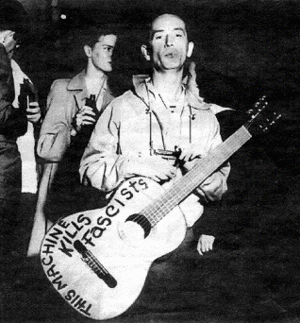I think, all in all, Obama is doing quite well. Consider where we are with the health care debate. Obama decided to jump into this fight in the first year of his first term. And unlike the Clinton Administration in the '90's, Obama decided to let Congress take the lead in crafting the legislation. So for months and months we've followed the ups and downs of every committee debate and ever Senator's proclamation of support or opposition. We watched, gape-mouthed, as conservatives took over summertime town hall meetings and shouted down their representatives and blocked civic discussion. It worked so well that the energy industry talked about emulating the tactic to block climate change legislation. For some of us, in those dog days of summer, it felt like maybe the wheels were already coming off Obama's wagon.
But once again, it turned out that the hits Obama was taking were part of a rope-a-dope strategy. The screamers ran out of breath, dropped their stupid signs ("Keep government hands off my Medicare!"), and went home. And what do you know, a solid majority of the public still supports creating a public insurance option to compete with for-profit plans. In fact, support for the public option is up 5 points since August. And Obama has an approval rating around 56% (which of course is higher than the proportion of votes he got in November).
Oh, and we're about to pass a landmark health reform bill with some version of a public option.
Let me stress this: Congress will pass major health care reform legislation in the next couple of months. President Obama will sign it into law. And this will be the most sweeping health care reform in a generation--since the creation of Medicare. We won't get everything we want--the public option may be watered down with one of the several compromises on the table--but it will still be a significant achievement. And this will all be accomplished in President Obama's first year in office.
Then, after passing sweeping health care reform--which, remember, President Clinton failed to do--President Obama will point and say, "See, this is 'change you can believe in.' This is why we came to Washington. To do big stuff." And that seems to me like a damn good start on his re-election campaign.
If you remember, at the beginning of all this, Republicans were talking about turning health care into Obama's Waterloo. South Carolina Senator Jim DeMint (R) said darkly:
"If we're able to stop him on this it will be his Waterloo. It will break him."
That now looks like the exact opposite of what's actually going to happen. Not bad for a rookie president.










